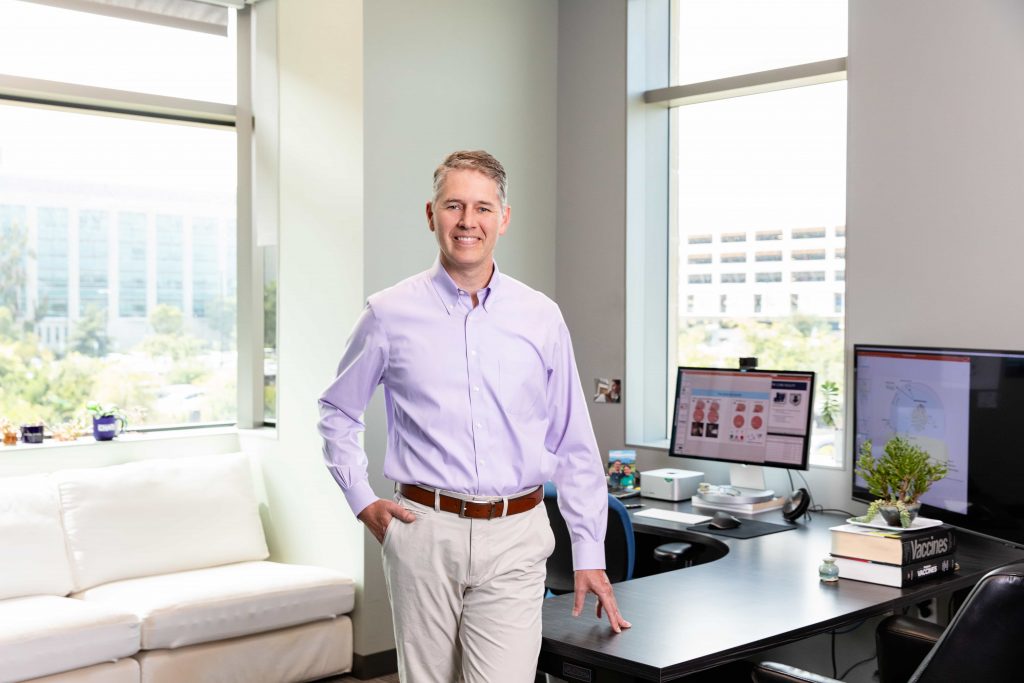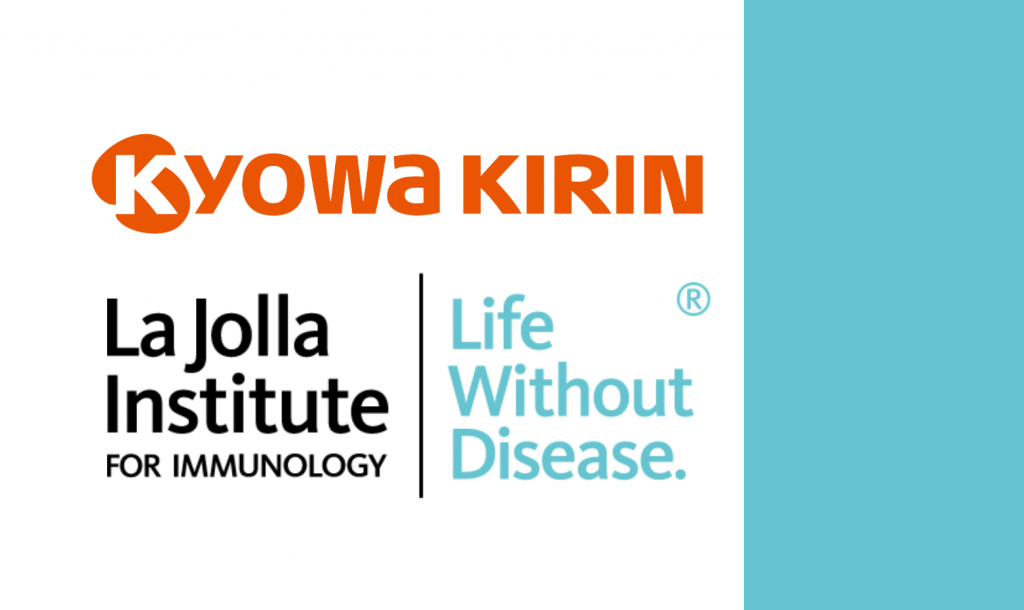LA JOLLA—La Jolla Institute for Immunology (LJI) Professor Erica Ollmann Saphire, Ph.D. has been named Scientist of the Year by ARCS San Diego, a chapter of the Achievement Rewards for College Scientists (ARCS) Foundation. The annual award recognizes Saphire’s breakthroughs in structural virology and her leadership of the Coronavirus Immunotherapy Consortium (CoVIC) this year.
One San Diego scientist is recognized each year. Recent awardees include Paul Schimmel of Scripps Research, Karen Nelson, president of the J. Craig Venter Institute, and Rusty Gage, president of the Salk Institute.
“This is the first time LJI has been recognized,” says Saphire. “Emerging recognition of the Institute as a whole this year has been important to me—our depth and focus on human immunity provide a rich opportunity for human health.”
“The San Diego chapter of ARCS is thrilled to honor Dr. Erica Ollmann Saphire as our 2021 Scientist of the Year,” says Holly Heaton, president of ARCS San Diego. “I have been watching Dr. Saphire via the La Jolla Institute for Immunology webinars recently as she provides global leadership in understanding host-virus interactions, which will be key to responding to COVID-19 today and for future pandemics. She is a remarkable scientist and leader.”
Saphire and her lab members study the host-pathogen interface at the molecular level. Her work has shed light on global killers such as HIV, Ebola, Lassa, Marburg and SARS-CoV-2, the virus that causes COVID-19.
Saphire moved from Texas to San Diego to pursue her graduate studies in 1994. She went on to start her own lab at Scripps Research in 2003. In 2019, Saphire joined the LJI faculty as professor and led the Institute’s effort to establish a molecular imaging facility, which gives scientists cutting-edge tools to examine key proteins involved in disease.
Throughout her career, Saphire has been a leader in global efforts against viral diseases. As the director of the Viral Hemorrhagic Fever Immunotherapeutic Consortium (VIC), she united 43 previously competing groups to uncover human antibodies that fight diseases such as Ebola virus and Lassa fever. This year, the Gates Foundation asked her to spearhead the Coronavirus Immunotherapy Consortium (CoVIC), a similar effort for SARS-CoV-2.
Under Saphire’s leadership, the CoVIC has brought together more than 50 competing research labs from four continents to compare and choose antibody therapies against COVID-19. “The most lasting part of this effort will be the body of information gained—which is broader, deeper, and more multidisciplinary than we could have gotten any other way,” says Saphire. “The database and analysis by LJI Professor Bjoern Peters will show us which therapeutics are most potent, durable and resistant to mutation. The other lasting benefits include the new research tools the consortium is developing, such as the better models of antibody utility and antibody half-life led by LJI Professor Sujan Shresta.”
Saphire will officially receive her award at a ceremony this spring. In the year ahead, she’s looking forward to developing pipelines to better visualize molecular structures inside cells and tissues.
“We want to understand and harness fundamental immunology, from the molecular to organismal scales,” says Saphire. “Blending the imaging techniques of cryoEM and cryoET with my colleague Zbigniew Mikulski‘s beautiful visualization tools at the cellular level will illuminate immune interactions for the topics in my LJI colleagues’ labs.”
In addition to their Scientist of the Year award, ARCS San Diego gives significant awards each year to fuel the work of promising graduate students in the region. In fact, the organization has distributed more than $10 million in local scholar awards over its 35-year history. The organization is led entirely by women.
Saphire has seen the impact of this support in the San Diego scientific community. “The range and variety of good science on the Torrey Pines Mesa, from broad educational institutions to focused think-tanks, is making a difference,” says Saphire.





